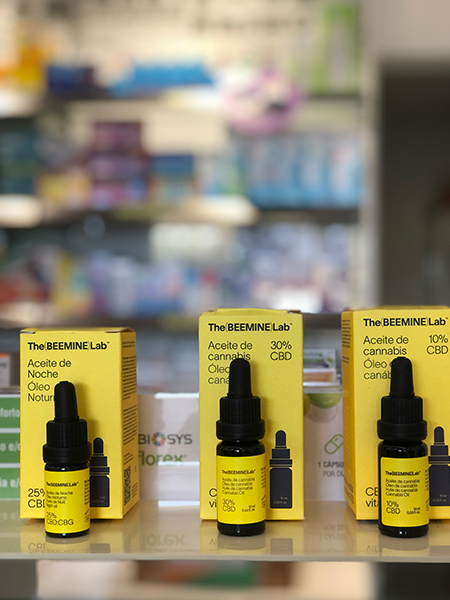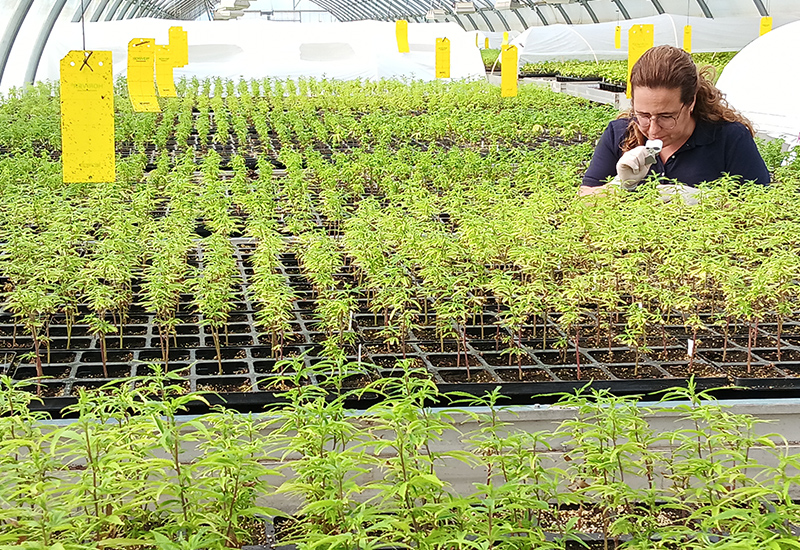Portugal, particularly the Algarve, is one of the main producers of top-quality medicinal cannabis in the world due to its excellent conditions for growing, processing, and exporting the drug.
Things have moved a long way since the recreational use of cannabis or marijuana during the 1960s counterculture in the Western world when getting “high” was very popular among bohemians. Just within the last decade, the focus has strongly shifted to perfecting cannabis for medical treatments.
By November last year, the Portuguese Ministry of Agriculture had issued licences to 42 companies to operate in activities related to medicinal cannabis. More companies are believed to be seeking licences to become involved in medicinal cannabis production under Portugal’s strict legal and security rules.
Doctors say high-quality medicinal cannabis can alleviate symptoms such as the pain associated with cancer and multiple sclerosis, and the nausea and vomiting caused by chemotherapy. It can also reduce body temperatures, stimulate appetite, prevent weight loss in people with HIV/AIDS, help treat certain rare forms of epilepsy, and even improve anxiety, insomnia and sleep quality.
Historians say cannabis has been used for healing purposes for almost 5,000 years, starting in 2,800 BC, when it was lauded in writings by Emperor Shen Nung, who is known as “the father of Chinese medicine”. Ancient Indian Hindus, Assyrians, Greeks and Romans all praised the therapeutic qualities of cannabis, which they claimed were able to help with a great array of problems, including arthritis, asthma and amenorrhea.


With medicinal cannabis use in Portugal now perfectly legal, local pharmacists say it is available in various forms without a doctor’s prescription. Oils, creams and pills can be bought at prices around €16 to €50 to alleviate pain or skin problems. Prescriptions may be needed for stronger and much more expensive cannabis medications.
To meet the increasing demand, the first medicinal cannabis company to be established in the Algarve with 100% Portuguese capital has been growing, processing and packaging on its farm in Castro Marim and factory in Vila Real de Santo António in the eastern Algarve since 2021. The latest fully licensed farm has been set up by a Danish company on well-protected land not far from the centre of Lagoa. Sandra Sal, the Portugal-based agronomist with the Danish Scholl medical company, has explained to us that in addition to the sunny weather, “the sandy soil on their farm is just what is needed because it allows good water drainage and a breathable environment for the roots of the plants cultivated organically”.
She says, however, that there are concerns about the shortage of water availability due to droughts, even though cannabis is not as water-demanding as many other plants. She adds that the Lagoa farm “has a water-saving policy with which water is collected from their drainage system, guided into a pond, and then used mainly for drip irrigation”. The Danish company is investing in the improvement of the irrigation system to be able to manage it and control it carefully to guarantee there’s no water wastage. All being well, the aim is to begin exporting to several European countries in the middle of this year.
Both creams and oils can relieve pain. Pharmacists can advise which are best for different kinds of pain. Creams are generally weaker and €15 to €20 less expensive than oils or pills.
Did you know?
Portugal’s current cannabis laws are regarded as among the most progressive in the world. In 2001, the government decriminalised personal cannabis use, focusing on treatment rather than punishment. As such, the overall number of drug users in the country has gone down. However, it wasn’t until 2018 that medicinal cannabis was legalised.













